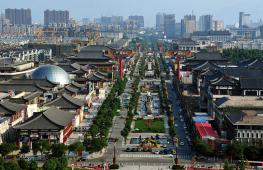“Rogues” should not be allowed in: Sobchak proposed introducing a tourist tax in Monaco so that the poor would not interfere with the rich’s vacation. Now let's see what came out of all this: Live broadcast about poor people
Remember how twenty-odd years ago one young and promising deputy from the Mogilev region promised us to deal harshly with the residents of the royal villages that had grown around Belarusian cities? And for those who are poorer - a bag of feed and a refrigerator as compensation for lost Soviet contributions? And should we all retreat to a safe distance from the edge of the abyss?
Now let's see what came of it all.
A year ago, many Belarusians were forced to remember the nineties: a shortage of decent jobs, prices growing faster than wages, fog instead of brilliant prospects in the economy.
And a year later we were reminded that the very rich whose palaces were promised war had not gone away. They have become even richer and, judging by the Minsk Sea, much more self-confident.
And what is most striking is that these richest people today, as a rule, belong to the one who promised to fight them at the dawn of his political career. “Their” businessmen open supermarket after supermarket, “their” hockey players build houses and buy shopping centers, “their” officials received elite houses in one of the most expensive areas Minsk.
Sign at the entrance to country club a businessman close to the authorities is not just a road sign (albeit dubious from the point of view of the law). This is a sign to all of us that a state within a state has appeared in the country.
One can argue for a long time about why this happened. But many people will most likely not like the answer. It is unlikely that the majority of society, having once exchanged their right to control power for a small but stable salary, could count on a different outcome.
If you don't want to stress, go to other places. There is a quiet life, cheap housing and lilacs under the windows. You are sitting in the center of civilization, you want to drive an expensive car, eat in an expensive restaurant, live in an expensive apartment. What did you do for this?
Tell me honestly: in this city, if you don’t get a few thousand dollars a month, you have nothing to do.”
It was the summer of 2007, Luzhkov was the mayor of Moscow, and Leonid Kazinets, the owner of the Barkley construction company, was going to drive out the poor from Moscow. Polonsky at that very time was sending losers who didn’t have a billion to hell. Then it seemed that the money would always flow like a river; Moscow grew, grinding down the poor.
10 years passed and Mr. Kazinets’s dreams came true in another center of civilization - Silicon Valley in California. The place where the future is born, where the offices of the world's leading IT companies are located. And where there is also no place for beggars. A recent study found that one in four residents of Silicon Valley cannot afford nutritious food. Let me make a reservation right away: it is not Russia Today that talks about the horrors of the decaying West, but the quite authoritative British newspaper The Guardian.
On this moment There are about 720 thousand people in Silicon Valley who cannot afford nutritious food. About a quarter of them are families with children.

How did this happen? The Guardian spoke to one of the women who was among those people. She works as a cook in the Facebook cafeteria and spends her days preparing free food for its employees. But when she returns home from work, she finds that she has nothing to buy food for her two daughters. This is because almost all of her salary goes to pay for rent.

The culprits for this were the very same technology corporations that bring unprecedented profits to the region and make it one of the richest in the country. With each new headquarters being built in Silicon Valley, the cost of living and rent continues to skyrocket. The salaries of ordinary residents of the valley do not have time to grow as quickly, and therefore many people have to go without food or go to live on the streets.

San Francisco's rental costs are among the highest in the country, and many people are unable to afford them. This is one of the reasons why there are so many homeless people in the region. Quite decent people and skilled workers find themselves forced to live in cars or move out of town in order to spend several hours every day traveling to and from work.

The entire population of Silicon Valley turned out to be clearly divided into two parts: highly paid high-tech workers and everyone else. And while the former are swimming in wealth, the latter have to make enormous efforts to survive. Many people even turn to the government for help. But since the salaries of many of them are quite decent by the standards of the country, they are often refused. The average family income in the United States is just under $60,000, but in Silicon Valley, an income of $85,000 is no longer enough to rent a home and feed your family.

To somehow help these people, sponsors opened a food bank in San Jose called Second Harvest. So far it is the only one in Silicon Valley and one of the largest in the country. It is capable of providing food for about 257 thousand people.

The bank stores fresh vegetables, fruits, bread, meat, milk and canned goods, which volunteers distribute to those in need.


Volunteers from among PayPal employees work in the warehouse free of charge. Many other corporations provide financial assistance to the bank, for example, Facebook COO Sheryl Sandberg became one of its main sponsors.

People who come for food are given all the basic products necessary for normal nutrition. These include potatoes, rice, chicken, beans, tomatoes and corn.

 Photos: Guardian
Photos: Guardian
This whole situation is very ironic in light of the fact that all technology corporations constantly talk about the need for universal equality and intolerance of any discrimination. For example, in August, Google fired one of its engineers who ventured to say that gender inequality is due to biological reasons. And a couple of months earlier, a member of the Uber board of directors had to resign after he spoke out against the presence of women in the company's management.

And in the end, it turned out that all these companies, which so zealously defended universal human rights and universal equality, became the main cause of terrible social inequality in Silicon Valley.
“The whole problem with Moscow is that in reality dear city we are trying to maintain social security. Today in Moscow, make entrance fees into the city several hundred dollars a month; entry into the center is even more expensive. And there will be no traffic jams, just as there are none now in central London.If you don't want to stress, go to other places. There is a quiet life, cheap housing and lilacs under the windows. You are sitting in the center of civilization, you want to drive an expensive car, eat in an expensive restaurant, live in an expensive apartment. What did you do for this?
Tell me honestly: in this city, if you don’t get a few thousand dollars a month, you have nothing to do.”
It was the summer of 2007, Luzhkov was the mayor of Moscow, and Leonid Kazinets, the owner of the Barkley construction company, was going to drive out the poor from Moscow. Polonsky at that very time was sending losers who didn’t have a billion to hell. Then it seemed that the money would always flow like a river; Moscow grew, grinding down the poor.
10 years passed and Mr. Kazinets’s dreams came true in another center of civilization - Silicon Valley in California. The place where the future is born, where the offices of the world's leading IT companies are located. And where there is also no place for beggars. A recent study found that one in four residents of Silicon Valley cannot afford nutritious food. Let me make a reservation right away: it is not Russia Today that talks about the horrors of the decaying West, but the quite authoritative British newspaper The Guardian.
At the moment, there are about 720 thousand people in Silicon Valley who cannot afford nutritious food. About a quarter of them are families with children.

How did this happen? The Guardian spoke to one of the women who was among those people. She works as a cook in the Facebook cafeteria and spends her days preparing free food for its employees. But when she returns home from work, she finds that she has nothing to buy food for her two daughters. This is because almost all of her salary goes to pay for rent.

The culprits for this were the very same technology corporations that bring unprecedented profits to the region and make it one of the richest in the country. With each new headquarters being built in Silicon Valley, the cost of living and rent continues to skyrocket. The salaries of ordinary residents of the valley do not have time to grow as quickly, and therefore many people have to go without food or go to live on the streets.

San Francisco's rental costs are among the highest in the country, and many people are unable to afford them. This is one of the reasons why there are so many homeless people in the region. Quite decent people and skilled workers find themselves forced to live in cars or move out of town in order to spend several hours every day traveling to and from work.

The entire population of Silicon Valley turned out to be clearly divided into two parts: highly paid high-tech workers and everyone else. And while the former are swimming in wealth, the latter have to make enormous efforts to survive. Many people even turn to the government for help. But since the salaries of many of them are quite decent by the standards of the country, they are often refused. The average family income in the United States is just under $60,000, but in Silicon Valley, an income of $85,000 is no longer enough to rent a home and feed your family.

To somehow help these people, sponsors opened a food bank in San Jose called Second Harvest. So far it is the only one in Silicon Valley and one of the largest in the country. It is capable of providing food for about 257 thousand people.

The bank stores fresh vegetables, fruits, bread, meat, milk and canned goods, which volunteers distribute to those in need.


Volunteers from among PayPal employees work in the warehouse free of charge. Many other corporations provide financial assistance to the bank, for example, Facebook COO Sheryl Sandberg became one of its main sponsors.

People who come for food are given all the basic products necessary for normal nutrition. These include potatoes, rice, chicken, beans, tomatoes and corn.


Photos: Guardian
This whole situation is very ironic in light of the fact that all technology corporations constantly talk about the need for universal equality and intolerance of any discrimination. For example, in August, Google fired one of its engineers who ventured to say that gender inequality is due to biological reasons. And a couple of months earlier, a member of the Uber board of directors had to resign after he spoke out against the presence of women in the company's management.

And in the end, it turned out that all these companies, which so zealously defended universal human rights and universal equality, became the main cause of terrible social inequality in Silicon Valley.
“The whole problem with Moscow is that in a really expensive city we are trying to maintain social security. Today in Moscow, make entrance fees into the city several hundred dollars a month; entry into the center is even more expensive. And there will be no traffic jams, just as there are none now in central London.If you don't want to stress, go to other places. There is a quiet life, cheap housing and lilacs under the windows. You are sitting in the center of civilization, you want to drive an expensive car, eat in an expensive restaurant, live in an expensive apartment. What did you do for this?
Tell me honestly: in this city, if you don’t get a few thousand dollars a month, you have nothing to do.”
It was the summer of 2007, Luzhkov was the mayor of Moscow, and Leonid Kazinets, the owner of the Barkley construction company, was going to drive out the poor from Moscow. Polonsky at that very time was sending losers who didn’t have a billion to hell. Then it seemed that the money would always flow like a river; Moscow grew, grinding down the poor.
10 years passed and Mr. Kazinets’s dreams came true in another center of civilization - Silicon Valley in California. The place where the future is born, where the offices of the world's leading IT companies are located. And where there is also no place for beggars. A recent study found that one in four residents of Silicon Valley cannot afford nutritious food. Let me make a reservation right away: it is not Russia Today that talks about the horrors of the decaying West, but the quite authoritative British newspaper The Guardian.
At the moment, there are about 720 thousand people in Silicon Valley who cannot afford nutritious food. About a quarter of them are families with children.

How did this happen? The Guardian spoke to one of the women who was among those people. She works as a cook in the Facebook cafeteria and spends her days preparing free food for its employees. But when she returns home from work, she finds that she has nothing to buy food for her two daughters. This is because almost all of her salary goes to pay for rent.

The culprits for this were the very same technology corporations that bring unprecedented profits to the region and make it one of the richest in the country. With each new headquarters being built in Silicon Valley, the cost of living and rent continues to skyrocket. The salaries of ordinary residents of the valley do not have time to grow as quickly, and therefore many people have to go without food or go to live on the streets.

San Francisco's rental costs are among the highest in the country, and many people are unable to afford them. This is one of the reasons why there are so many homeless people in the region. Quite decent people and skilled workers find themselves forced to live in cars or move out of town in order to spend several hours every day traveling to and from work.

The entire population of Silicon Valley turned out to be clearly divided into two parts: highly paid high-tech workers and everyone else. And while the former are swimming in wealth, the latter have to make enormous efforts to survive. Many people even turn to the government for help. But since the salaries of many of them are quite decent by the standards of the country, they are often refused. The average family income in the United States is just under $60,000, but in Silicon Valley, an income of $85,000 is no longer enough to rent a home and feed your family.

To somehow help these people, sponsors opened a food bank in San Jose called Second Harvest. So far it is the only one in Silicon Valley and one of the largest in the country. It is capable of providing food for about 257 thousand people.

The bank stores fresh vegetables, fruits, bread, meat, milk and canned goods, which volunteers distribute to those in need.


Volunteers from among PayPal employees work in the warehouse free of charge. Many other corporations provide financial assistance to the bank, for example, Facebook COO Sheryl Sandberg became one of its main sponsors.

People who come for food are given all the basic products necessary for normal nutrition. These include potatoes, rice, chicken, beans, tomatoes and corn.


Photos: Guardian
This whole situation is very ironic in light of the fact that all technology corporations constantly talk about the need for universal equality and intolerance of any discrimination. For example, in August, Google fired one of its engineers who ventured to say that gender inequality is due to biological reasons. And a couple of months earlier, a member of the Uber board of directors had to resign after he spoke out against the presence of women in the company's management.

And in the end, it turned out that all these companies, which so zealously defended universal human rights and universal equality, became the main cause of terrible social inequality in Silicon Valley.



